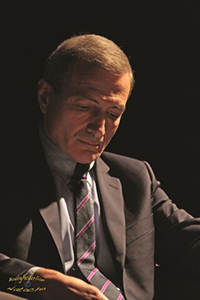Whatever the grievances against Russia — some justified, others questionable — it is not in Armenia’s interest to break off its strategic relations with Moscow and even less to accept the role of a pawn on a chessboard that will be swallowed in any scenario.
The Armenian government, the ruling party and part of the diaspora, in believing they are attracting the protection of the West, are unwitting instruments of war games and propaganda, as well as disinformation campaigns beyond their control.
The country is already a nest of spies, including from hostile countries. Furthermore, the European Union Mission in Armenia (EUMA) — officially a civilian operation under the European Union’s Common Security and Defense Policy — is composed of military and police personnel from many countries, whose objective is officially to stabilize the borders. This objective is proving to be a failure since the mission is still absent from the border areas where Azerbaijani troops are violating Armenian territory almost daily. This is not surprising, though, since the EUMA communicates its movements along the border to Azerbaijan in advance so it will not be fired upon by Azerbaijani border guards. Hence, one must wonder if the real mission would not be to keep an eye on Russia and Iran.
With the Armenian government gutting all the intelligence services and the general staff of the armies as soon as it came to power in May 2018 by the “Velvet Revolution” — including in the middle of the war from September to November 2020 — the country has been subjected to a takeover of its destiny by shadowy services and advisors. The request to regain control of the border police at Zvartnots airport should be seen in this context. This step to regain sovereignty looks futile when considering that Azerbaijan occupies 170 square kilometers of its territory, The move is clearly anti-Russian and likely to be dictated by Western partners. Without Russian border guards, Western and Israeli spies will be able to enter Armenia without the knowledge of Russian and Iranian intelligence.
Armenia seems to be controlled — consciously or unconsciously — by Western strategists who are using it to first weaken and then eliminate any Russian presence in the South Caucasus, at the risk of leading the former to its ruin.
A sensible person could hardly imagine that Western countries would protect Armenia militarily in the event of Azerbaijani aggression. The example of Ukraine, a large country with vast agricultural resources in which Western economic interests, particularly American, are significant, speaks for itself. After two years of war, some Europeans, led by France, are taking the initiative because Ukraine is on the brink of military collapse and the United States might pause its military aid. In other words, one may imagine how Armenia will be treated in case of Azerbaijani aggression, since it has little economic and strategic interest compared to Ukraine.








